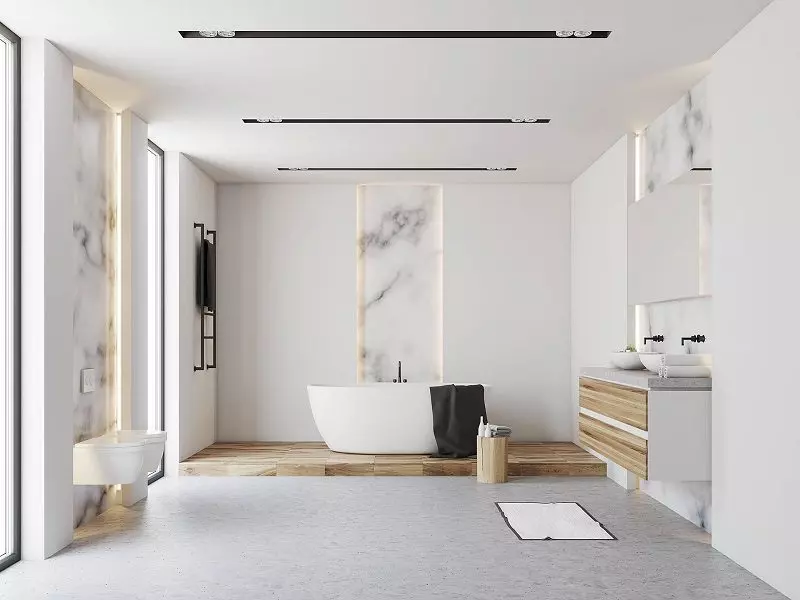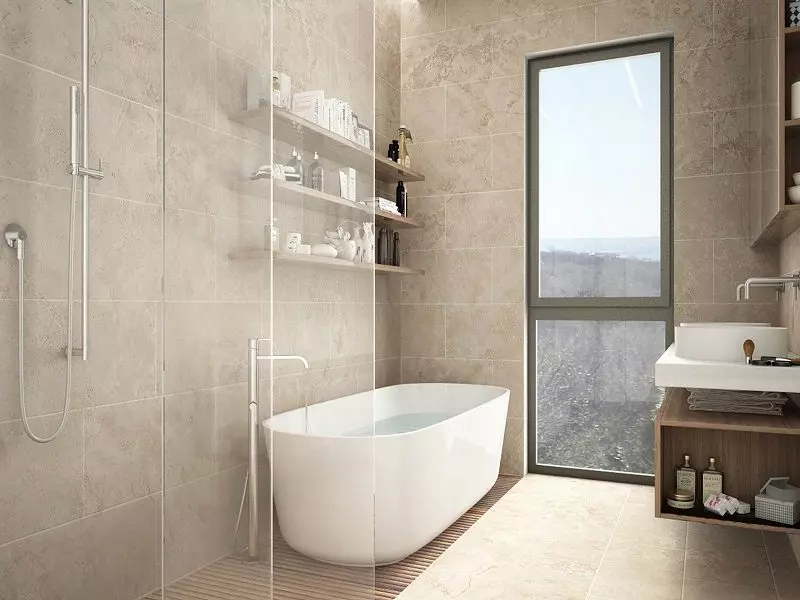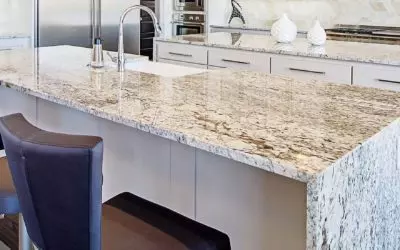Introduction to Granite Stone for Countertops
Purchasing a stone countertop is a worthwhile investment, but it’s also a serious one. Sure, it’s easy to determine which natural stone you want when looking at the sophisticated, rare design of each one, but it helps to know the facts beyond the stone’s appearance such as its origins, characteristics, and durability.
Here at Allied Gallery, we’d like to give you all-you-need-to-know information on each natural stone we provide, starting with a beloved favorite: granite.
Granite’s popularity shot up in the 1980s where it became a social statement and highly demanded in homes, even more so than marble. It’s luxurious look and tougher-than-a-nail condition made it a favorite for family abodes. We have this 80’s boom to thank for the stone’s still roaring popularity today.
Let’s look a little deeper at where it all began to really understand the value and quality of this admired stone.
IT’S ORIGINS
Granite is a natural stone that is believed to have formed approximately 300 million years ago. The stone is a type of igneous rock, or magmatic rock, which means the magma beneath the earth’s surface went through a crystallization process to create an igneous rock composed of a multitude of minerals and solid crystals. This concoction of earth’s minerals through this process forms, you guessed it, granite.
The stone is mainly composed of feldspar and quartz, with small hints of other minerals such as mica and amphibole. To be formally considered granite the particular stone needs to be 10 to 50 percent comprised of quartz and 60 to 90 percent comprised of feldspar. Percentages of each mineral can differentiate within the slab and change the overall appearance of the granite. This will be discussed in detail further along the article, so keep reading!


DURABILITY
Granite is considered one of the harder countertop materials, slightly softer than quartzite with a 6 – 7 rating on the Moh’s Hardness Scale. It would be quite tough to inflict scratches or significant damage onto the stone. If you try to cut the slab with a knife, the knife will dull out before you see any results from your efforts. This goes to snow that this natural stone countertop is long-lasting and would be a worthwhile investment.
Granite is also heat-resistant and can take on direct contact of hot appliances or boiling pots. It also won’t be affected by the heat of the sun if exposed to prolonged natural light.
However, this natural stone has a porous nature, thus it absorbs liquids like oil or juices if exposed for a long period. Make sure when owning this stone you properly seal your bathroom or kitchen countertop and your granite will be stain-resistant.
CHARACTERISTICS
Granite is a beautiful, colorful stone that is personalized for every owner. The colors, swirls, and placement of crystals depend on the unique crystallization process the rock underwent millions of years ago. Since the process and the location is so unique for each found rock, it is impossible to find two slabs that are exactly the same, meaning that your granite countertop is one-of-a-kind.
Let’s dive into the process of granite’s colors and overall design:
GRANITE COLORS
The colors depend on the amount of each mineral in the slab. As mentioned before, granite is composed of quartz, feldspar, mica, amphiboles, and other types of minerals. If the granite has a greater percentage of feldspar, it will be of pinker hue. If the stone has a greater percentage of quartz or minerals made up of amphibole, it will be of darker hues. This is why the colors of granite countertops can vary drastically from almost white to dark black.
GRANITE DESIGN
The swirls you see on granite slabs is a by-product of the shifting of the earth’s plate while the magma is cooling beneath the surface. Depending on how slow or how fast the magma is cooling will determine how large or small the crystals within the slab are.
Love the look, feel, and durability of granite countertops? Allied Stone Inc. has a variety of beautifully unique granite countertops that will perfectly match your kitchen or bathroom. If your tastes or needs are not suited for granite, we have hundreds of natural or engineered stone one of our professionals can help sort through with you such as soapstone, marble, quartzite and quartz countertops.
Stop by one of our locations

